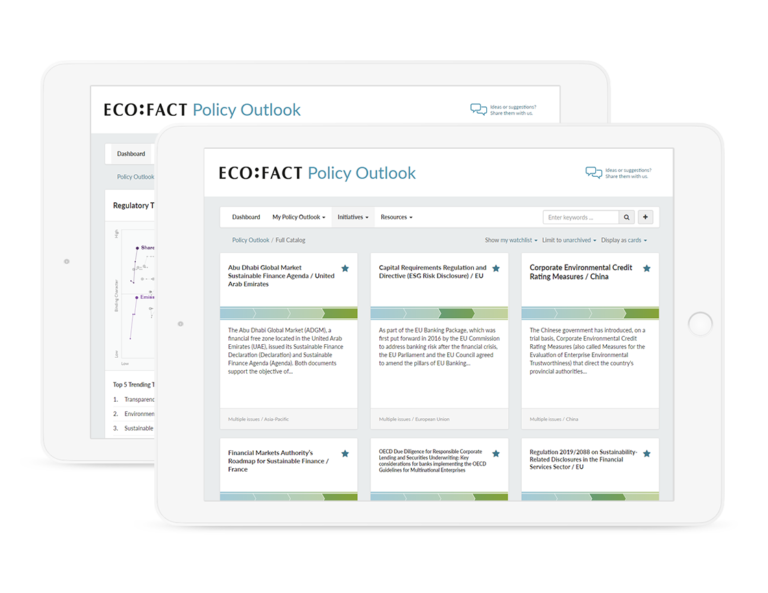Responsible Investment Frameworks
Latest estimates from the United Nations indicate that to achieve by 2030 the Sustainable Development Goals (SDGs), investments ranging between USD 5 to 7 trillion a year are necessary. Since the SDGs were adopted in 2016, governments and international organizations have called on the private sector to structure their investments in a manner that contributes to the realization of these goals.
A variety of frameworks have emerged that seek to guide and support the financial sector in assessing the impacts and contributions generated by its activities. In this context, ECOFACT Policy Outlook research encompasses more than 100 initiatives that address responsible investment practices in one way or another. Our analysis of this regulatory environment has identified the following trends:
Guiding frameworks: The UNEP FI Principles for Positive Impact, the South African Code for Responsible Investing, and the recently launched Operating Principles for Impact Management are examples of a group of soft law frameworks seeking to support investors, as well as other financial market players, in the pursuit of the SDGs. With the aim of better understanding how their activities can have a positive impact on society, the frameworks guide financial actors’ integration of environmental, social, and governance (ESG) issues into their processes and operations.
Purpose-driven initiatives: “One size does not fit all” is often heard in the context of sustainable strategies and so it follows that a series of frameworks have been adopted to maximize financial institutions’ positive impact. For example, institutions seeking to contribute to the conservation and sustainable use of the oceans, seas, and marine resources could refer to the Sustainable Blue Economy Finance Principles which were developed for this purpose.
Transparency and certification: Regulators and other public institutions are committed to avoiding ‘greenwashing’ and ‘bluewashing’ in relation to financial products. Consequently, sustainable financial products in certain jurisdictions, such as Austria, France, and Italy, are coupled with enhanced disclosure obligations.
To keep up with this fast-evolving regulatory landscape, visit the Policy Outlook. If you have any questions, please do not hesitate to contact us.
 All posts
All posts Contact
Contact



